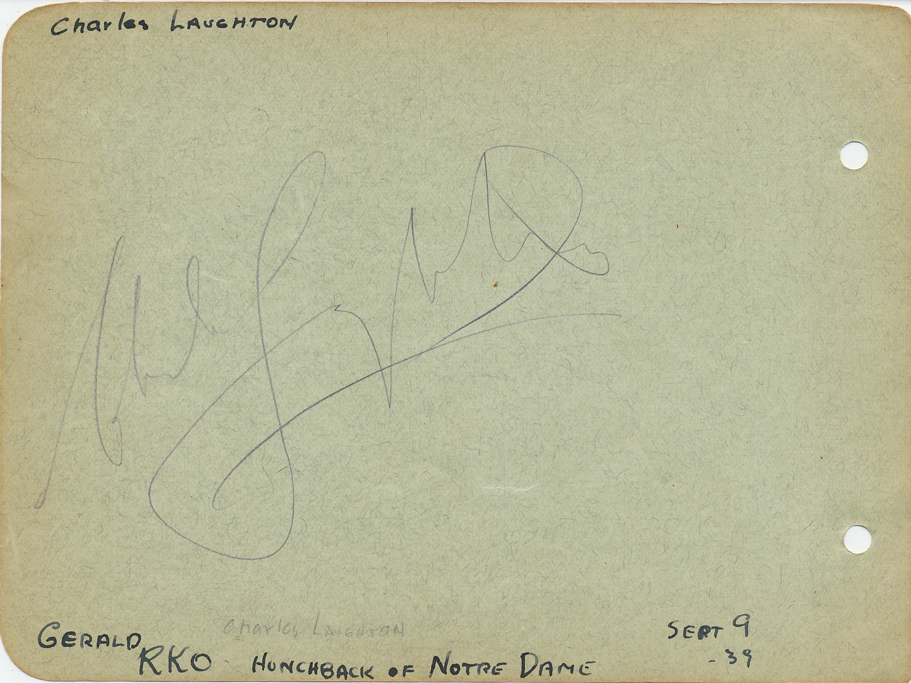Charles Laughton
Charles Laughton
Charles Laughton Signature on Autograph Album Page - 1939
Autograph in pencil on album page, signed during the filming of The Hunchback of Notre Dame in 1939, in which Laughton starred in the title role as Quasimodo. Also signed on reverse by Hunchback director William Dieterle. From the collection of another actor of the same period.
CHARLES LAUGHTON (1899-1962) was an Academy Award-winning English-American stage and film actor, screenwriter, producer and two-time director, who became an American citizen in 1950.
While best known for his historical roles in films, he started his career as a remarkable stage actor. During a time when many serious stage actors despised the motion picture medium, seeing it only as a source of income, Laughton showed keen and serious interest in the pioneering possibilities of film, and later other media, such as radio, recordings, and TV, proving that quality work could be made available to audiences other than theatre-goers.
Laughton’s film roles in the 1930s were among his finest and consisted almost entirely of the costume and historical drama parts for which he is best remembered, among them White Woman (1933) in which he co-starred with Carole Lombard as a cockney river trader in the Malaysian jungle; Les Misérables (1935) as Javert, the police inspector; Mutiny on the Bounty (1935) as Captain Bligh, one of his most famous screen roles, co-starring with Clark Gable as Fletcher Christian; and Jamaica Inn, with Maureen O’Hara and Robert Newton, based on a novel about Cornish smugglers by Daphne du Maurier, and the last film Alfred Hitchcock directed in Britain before moving to Hollywood in the late 1930s. The films produced were not successful enough, and the company was saved from bankruptcy when RKO Pictures offered Laughton the title role of Quasimodo in The Hunchback of Notre Dame (1939). Laughton and Pommer had plans to make further films, but the outbreak of World War II, which implied the loss of many foreign markets, meant the end of the company.
He would also star in an up-dated version of Oscar Wilde’s The Canterville Ghost (1944), and in spite of Wilde’s original flavor being mangled in order to turn the story into a piece of wartime propaganda, he was able to recover irony and weary melancholia of the character as Wilde originally devised him.
All Vintage Memorabilia autographs are unconditionally guaranteed to be genuine. This guarantee applies to refund of the purchase price, and is without time limit to the original purchaser. A written and signed Guarantee to that effect accompanies each item we sell.

